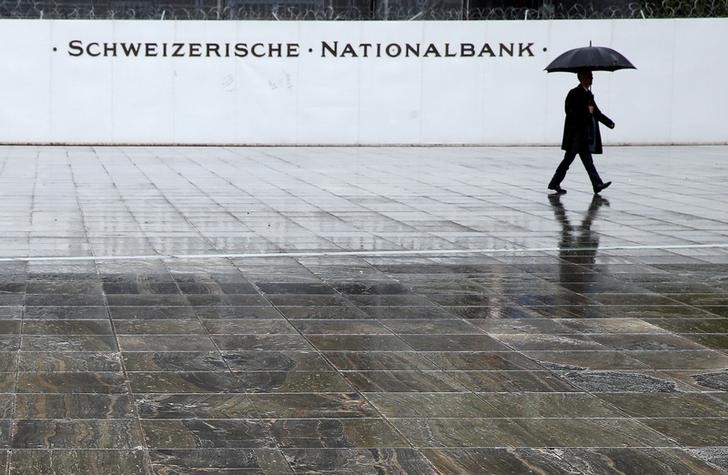Gold prices steady, holding sharp gains in wake of soft U.S. jobs data
(Bloomberg) -- Want the lowdown on European markets? In your inbox before the open, every day. Sign up here.
The Swiss National Bank offered banks additional relief from its negative interest rates, a move that could give it some leeway to cut them further if needed.
With the SNB’s policy rate at minus 0.75%, the finance industry has long complained about the impact on profitability. Officials led by Thomas Jordan responded on Thursday, saying they’ll exempt more of banks’ reserves from the cost of their monetary policy.
The SNB won’t impose charges on amounts as much as 25 times minimum reserves from Nov. 1, up from 20 currently, and review the level monthly. The move could help to prevent any further easing being passed on by banks to retail savers. Explaining the decision, the SNB said the low-rate environment around the world has “become more entrenched and could persist for some time yet.”
The measure comes a week after the European Central Bank cut its deposit rate and introduced a tiering system. While the SNB kept rates on hold, a deteriorating global outlook and no-deal Brexit could put upward pressure on the haven franc, forcing a policy response.
“Despite not acting at this meeting, the SNB signaled strongly that further policy easing is on the way,” economists at Citigroup (NYSE:C) including Christian Schulz said in a note.
In its policy statement, the SNB also said the franc is highly valued and reiterated its intervention pledge. The currency touched a two-year high against the euro earlier this month.
The franc was up 0.3% at 1.0965 per euro at 11:25 a.m. in Zurich.
Citing downside global risks, the SNB also made huge downgrades to the outlook. It now sees growth as low as 0.5% this year, from around 1.5% previously. Inflation will almost stagnate in 2020 and be just 0.6% in 2021.
The Swiss policy decision comes in a busy week for central banks. On Wednesday the Federal Reserve cut its key rate for the second time this year.
The Bank of Japan left policy unchanged on Thursday but said it’ll take a closer review of the economy next month. Indonesia’s central bank cut its key interest rate for a third straight month. Norway bucked the global trend with a rate hike.
(Updates with comment from economist in fifth paragraph.)
